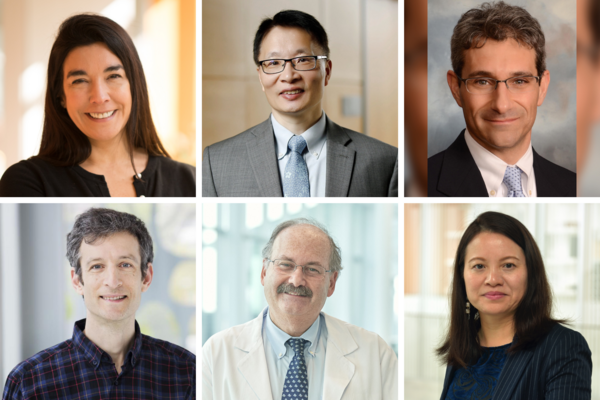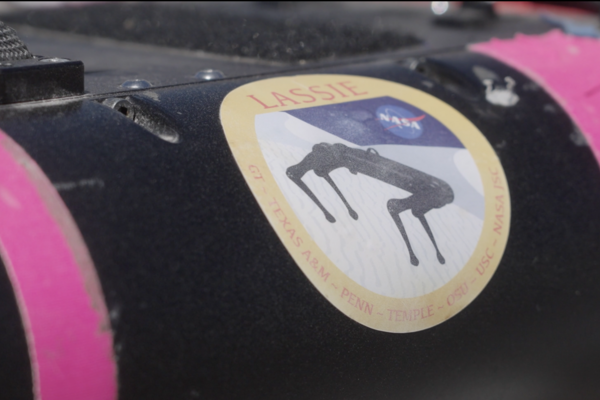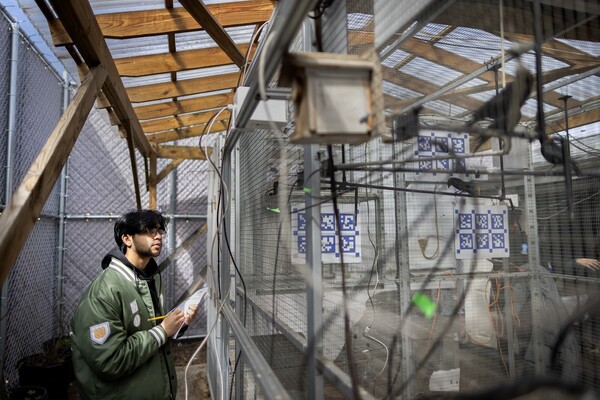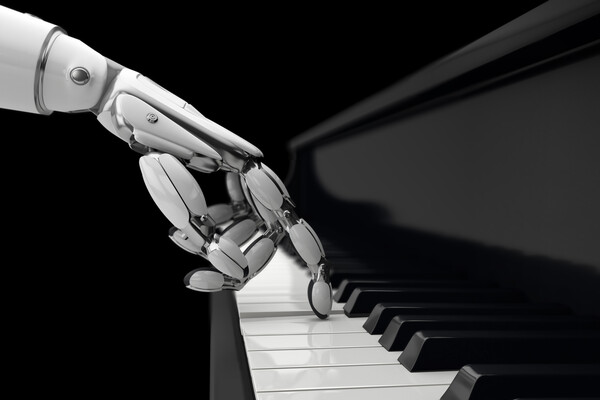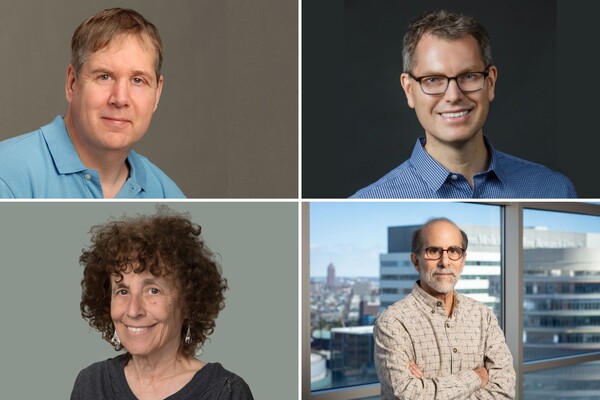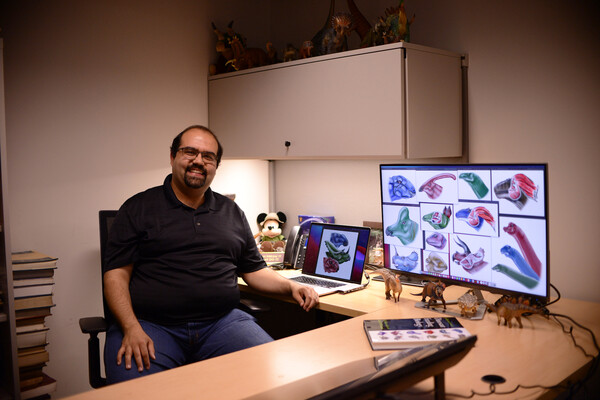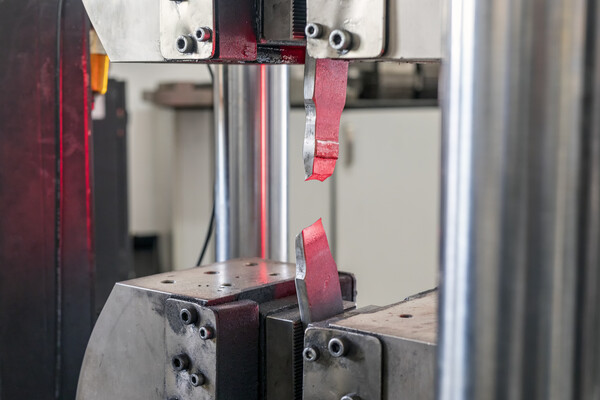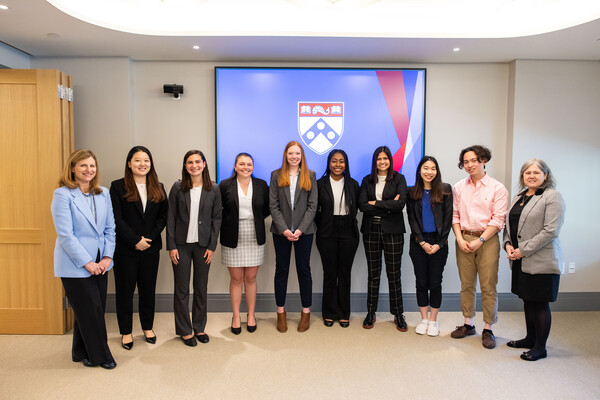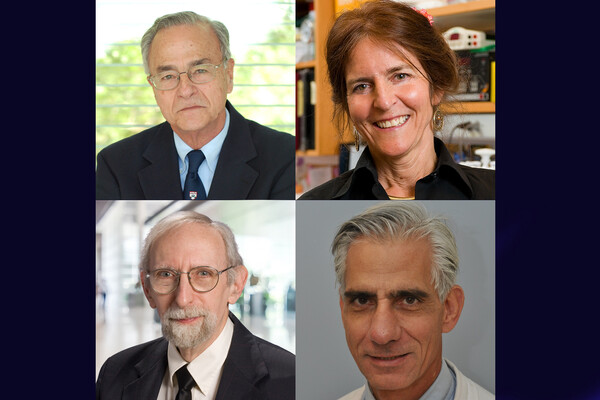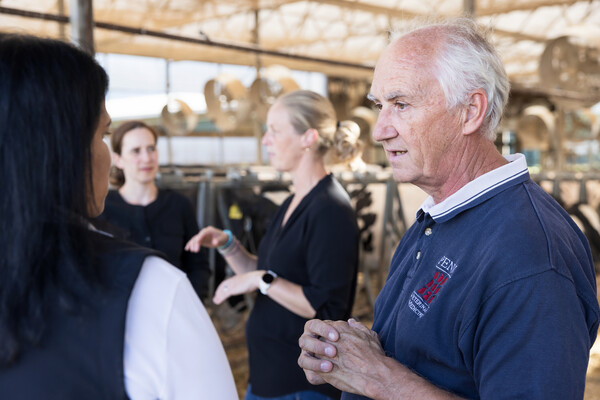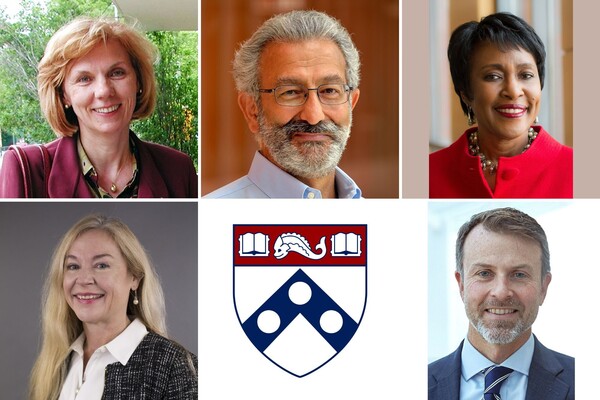4/16
Science & Technology
When robots touch the world
Penn Engineering’s Michael Posa discusses robotics in the age of artificial intelligence, the ambulatory genius of toddlers, navigating the unfamiliar and the elegance of not learning everything.
Moore than meets the eye
Following the death of Gordon Moore, co-founder of Intel and a pioneer in computer processor chips, Penn Today spoke with the School of Engineering and Applied Science’s Benjamin C. Lee about Moore’s contributions to technology and the history and rapid evolution of chips.
Four from Penn elected to the National Academy of Sciences
The newly elected members, distinguished scholars recognized for their innovative contributions to original research, include faculty from the School of Arts & Sciences, Perelman School of Medicine, Annenberg School for Communication, and Wharton School.
What fossils tell us about the dining habits of dinosaurs
More than a century of research is vividly shared in ‘An Illustrated Guide to Dinosaur Feeding Biology’ by Ali Nabavizadeh of the School of Veterinary Medicine and David B. Weishampel of Johns Hopkins University.
Repairing fractured metals for more sustainable construction
Mining, refining, and processing metals commonly used in construction are estimated to contribute around three billion tons of CO2-equivalent emissions. Now, researchers have developed a new metal-healing technique that fully restores previously unrepairable metals, presenting sustainable options for manufacturers.
Celebrating the 2023 President’s Engagement and Innovation Prize winners
At a special luncheon on campus, President Liz Magill recognized this year’s eight awardees, who she said “exemplify imagination, creativity, grit, and leadership.”
Four from Penn awarded Helen Keller Prize for Vision Research
Faculty from the School of Veterinary Medicine and Perelman School of Medicine were honored at the Association for Research in Vision and Ophthalmology meeting in New Orleans.
Cross-disciplinary collaboration for a healthier planet
The Environmental Innovations Initiative announces a third round of funded research communities to catalyze interdisciplinary research at Penn, investigating issues from regenerative agriculture to project-based learning for global climate justice.
Major players block China’s access to advanced chip materials for developing AI
Japan and the Netherlands join the U.S. and Taiwan in restricting exports to China of advanced artificial intelligence and chip-making technologies.
Five from Penn elected to the American Academy of Arts and Sciences in 2023
Faculty from the School of Arts & Sciences, School of Engineering and Applied Science, Graduate School of Education, and Perelman School of Medicine are recognized this year for contributions to physics, engineering and technology, education, economics, and microbiology and immunology.
In the News
Here’s why experts don’t think cloud seeding played a role in Dubai’s downpour
Michael Mann of the School of Arts & Sciences says that many people blaming cloud seeding for Dubai storms are climate change deniers trying to divert attention from what’s really happening.
FULL STORY →
Can we stop AI hallucinations? And do we even want to?
Chris Callison-Burch of the School of Engineering and Applied Science says that auto-regressive generation can make it difficult for language learning models to perform fact-based or symbolic reasoning.
FULL STORY →
“Record-shattering” heat wave in Antarctica — yep, climate change is the culprit
Michael Mann of the School of Arts & Sciences says that persistent summer weather extremes like heat waves are becoming more common as people continue to warm the planet with carbon pollution.
FULL STORY →
How the solar eclipse will affect solar panels and the grid
Benjamin Lee of the School of Engineering and Applied Science says that the electrical grid will have to figure out how to match supply and demand during brief windows where the energy source goes away.
FULL STORY →
Scientists struggle to explain ‘really weird’ spike in world temperatures
Michael Mann of the School of Arts & Sciences says that tendencies to exaggerate climate science in favor of “doomist” narratives helps no one except the fossil fuel industry.
FULL STORY →
Spring is here very early. That’s not good
Michael Mann of the School of Arts & Sciences says that plant-flowering, tree-leafing, and egg-hatching are all markers associated with spring that are happening sooner.
FULL STORY →
Can your personal medical devices be recycled?
A lab at the School of Engineering and Applied Science led the development of a COVID test made from bacterial cellulose, an organic compound.
FULL STORY →
Could Florida electric bills go up because of a fuel made from manure?
Danny Cullenward of the Kleinman Center for Energy Policy at the Weitzman School of Design says that federal and California state subsidies have led to a gold rush of companies trying to get into the business of renewable natural gas around the country.
FULL STORY →
Pa. environmental, religious and other groups criticize Shapiro plan for ignoring climate change
A study by the Kleinman Center for Energy Policy at the Weitzman School of Design found that Pennsylvania would benefit overall from joining the Regional Greenhouse Gas Initiative.
FULL STORY →
Why don’t we just ban fossil fuels?
Joseph Romm of the School of Arts & Sciences says that stronger action against fossil fuels is essential to save the planet.
FULL STORY →




